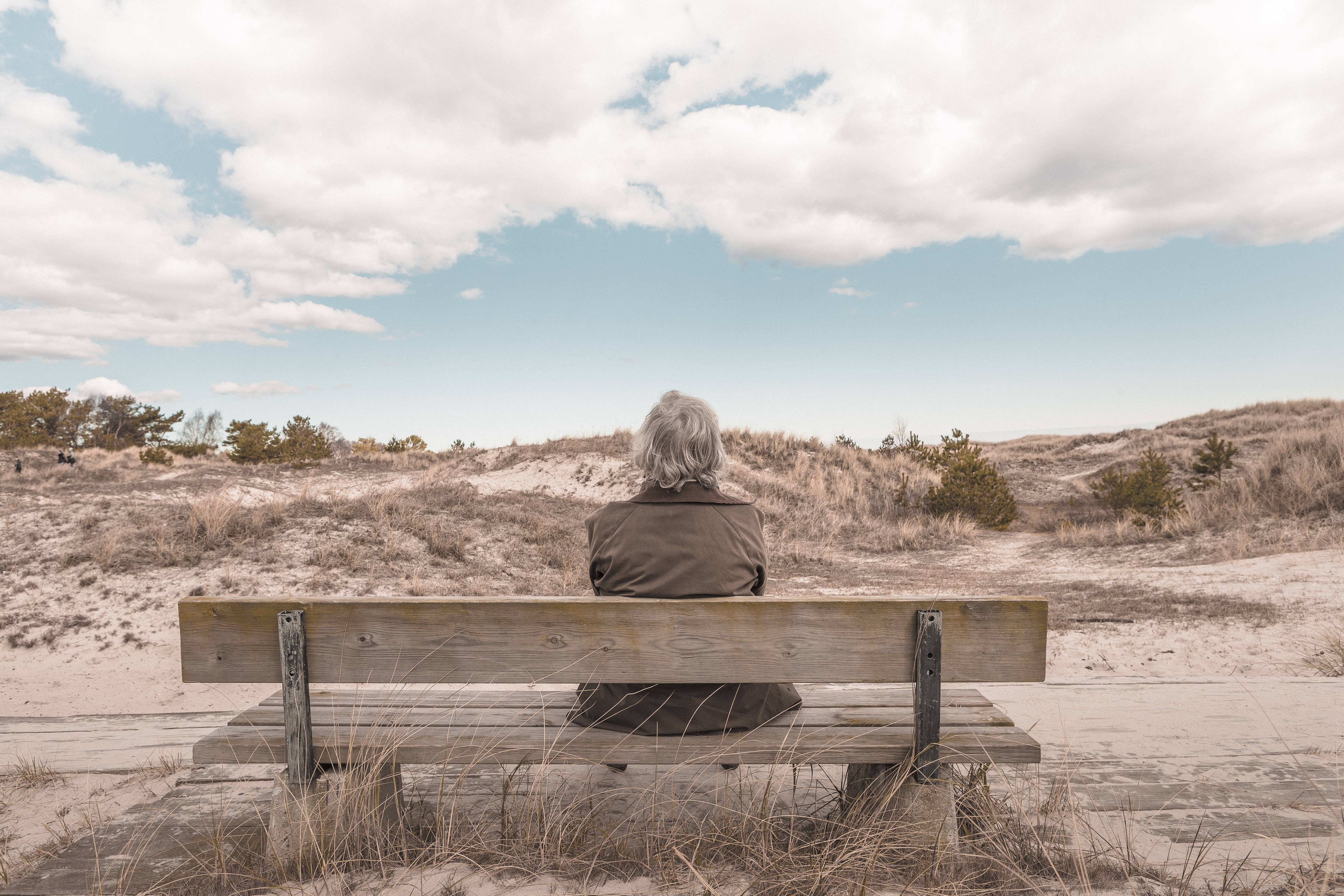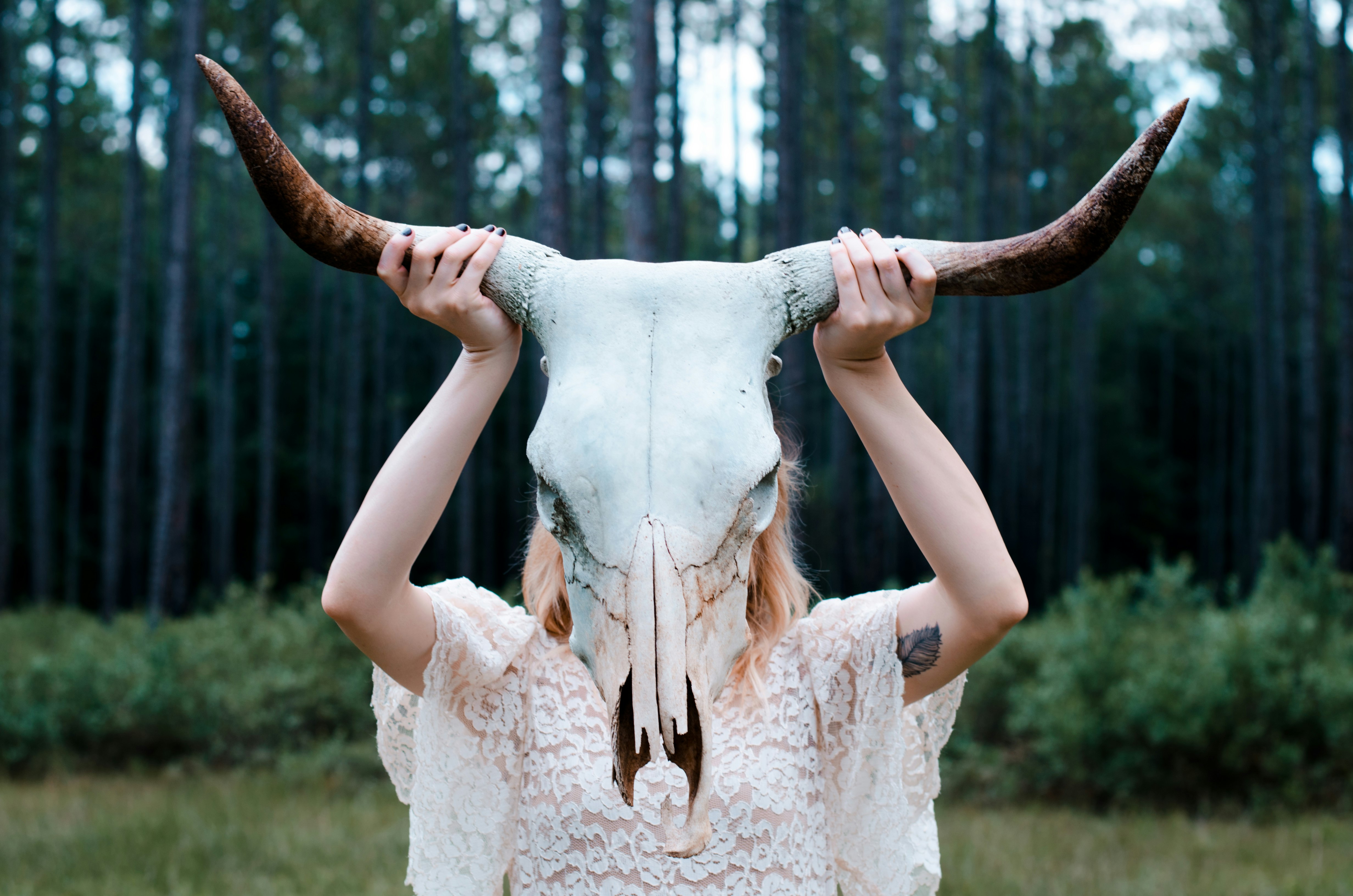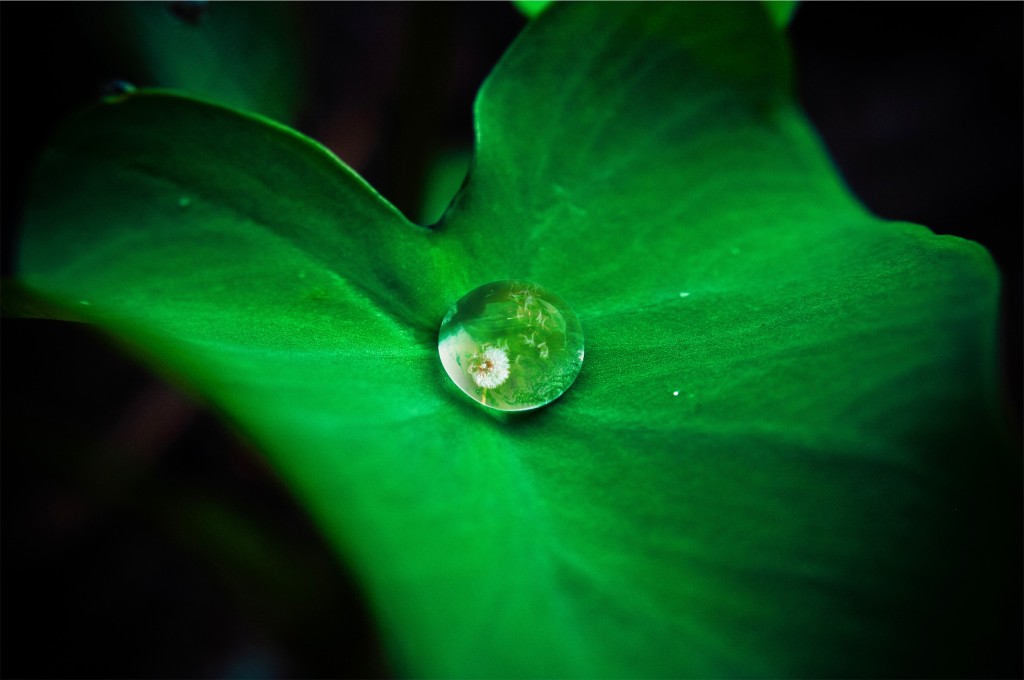Lately I’m oscillating between shock, dismay, dissociation, and fear. And I know I’m not alone. My social media feeds are filled with people talking about how to take care of yourself right now. They say things like, “Take a break from doomscrolling” and “connect with your community.” It’s great advice and I’ve asked myself, “Do I also have something to contribute?” Other than what I already have I mean, namely my post from the other week about how we’re the “magic wands”? The answer is yes.
Something that helps me soothe myself and process my emotions is emotional freedom technique (EFT), also known as tapping. EFT uses meridian points to restore balance to your body’s energy. It’s like acupuncture without the needles and engages the mind because you say things out loud as you tap.
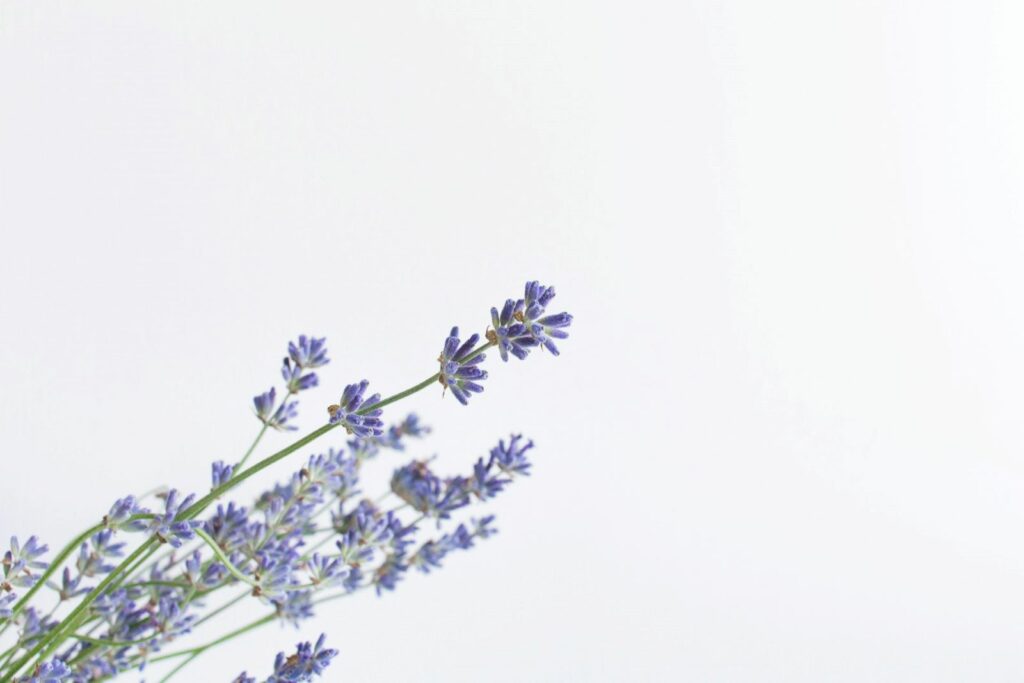
Lavender is also good for anxiety. Photo by Olga Tutunaru on Unsplash
EFT has been used to treat war vets and active military with PTSD. In a 2013 study, researchers found participants receiving EFT coaching sessions significantly reduced their psychological stress – so much so that more than half of the EFT participants no longer fit the criteria for PTSD! A 2022 meta-analysis found EFT had measurable biological effects in the dimensions of gene expression, brain synchrony, hormonal synthesis, and a wide range of biomarkers. In other words, there is a literal, physical difference in the body before and after tapping.
EFT practitioners use tapping for everything – anxiety, depression, trauma, physical pain, procrastination, even something like writer’s block. I find EFT to be very helpful, and if you’d like to try it, here’s a video from Kate Winch specifically on anxiety. Before you start, you should know that she’s going to start with negative statements and then move onto positive ones. If you don’t feel ready to start saying the positive affirmations when Kate does, pause the video and freestyle, expressing all the fear, anxiety, and negativity that’s still alive for you. Or you can rewind the video and repeat after her.
If you tapped along with Kate, I hope you feel better. I know I do. I especially appreciate how at the end she talks about taking inspired action. I know I’m not meant to do everything but I am meant to do something. And until I quell the panicked voices inside, I have no idea what that “something” is. EFT brings me more peace of mind so I can show up in the world as the best version of myself and contribute in a meaningful way. And I think that’s exactly what’s needed right now.
I dream of a world where we let ourselves feel our feelings. A world where we understand it’s OK to express the truth of how we’re feeling. A world where we use tools to regulate our emotions, especially mind-body ones like EFT. A world where we know there are balms for our anxiety.
Another world is not only possible, it’s probable.
Anxiety kicks up for me when I start to contemplate the future in a negative way. When I imagine worst-case scenarios like all my clients will end our relationship, I’ll drain my savings, and I’ll never move out of this one-bedroom apartment. It’s not a pleasant rumination. The answer seems simple, doesn’t it? Stop imagining a negative future.
Instead of imagining a negative future I could imagine a positive future. I could also do that thing spiritual teachers everywhere advise: be present. The latter is what’s coming up for me today. In fact, there’s a quote I like from a daily reader and this morning I planned to thumb through the entire book until I found it, except no need. I opened the book to exactly the quote I had in mind! It’s by Pindar who said, “Do not peer too far.” The affirmation in my daily reader is, “For today, I neither want to know the future, nor to live in it before it arrives.” Truthfully, I do want to know the future, but only if the future is line with my dreams, not my nightmares. However, the message for today is, “Be where your feet are.”
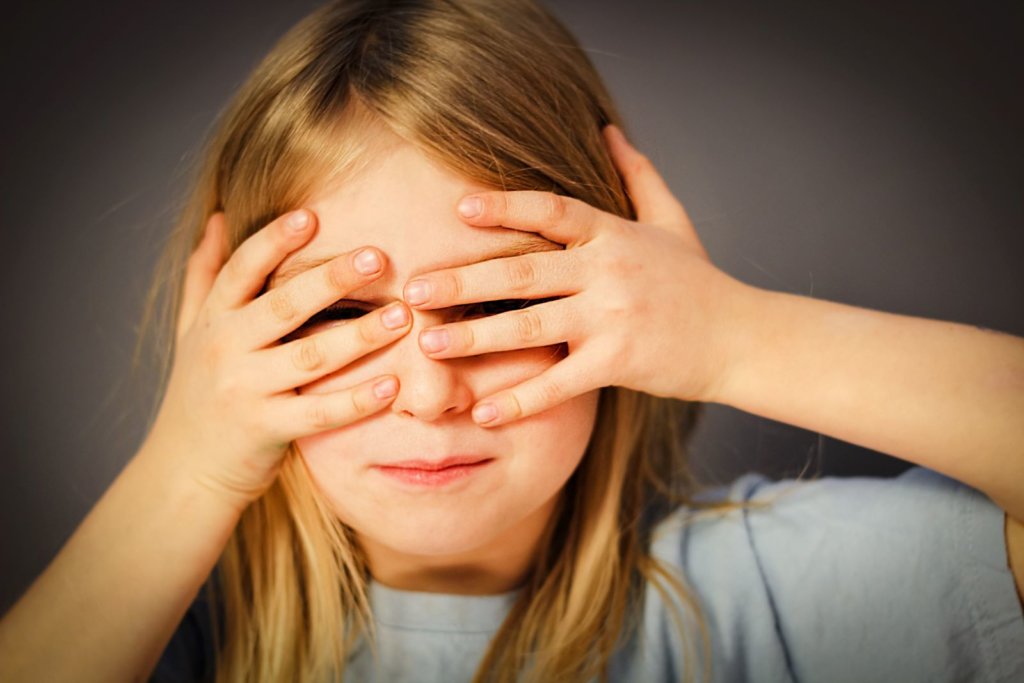
Keep a little mystery. Don’t look too far. Photo by Katie Gerrard on Unsplash
In the present moment am I OK? Am I able to pay my rent? Is there food in my fridge? Do I have a place to sleep? Am I getting enough connection? If the answer to all those questions is “yes,” I’d say I’m doing alright. What also helps me become grounded is to use my senses. What are five things I can see? Four things I can feel? Three things I can hear? Two things I can smell? One thing I can taste? Being in my body brings peace because the body only knows the here and now, nothing else.
It’s also helpful to remind myself life can be surprising and delightful. For instance, in the middle of writing this, a friend called me up and asked me if I’d like to go to an outdoor party in the redwoods with a pickup in 45 minutes! I said yes because why the heck not? I love redwoods and I haven’t been to a party in ages. If I knew the future, I wouldn’t be surprised or delighted by the spontaneous turn of events, and spontaneity goes hand in hand with joy, according to research.
Eating lunch sitting among redwoods and then lounging in a hammock afterward while I watched the wind blow needles off the trees was pretty delightful, I must say. And it’s not what I had planned for my day, which made it all the more enjoyable. Eckhart Tolle speaks to this in his book The Power of Now when he writes, “As soon as you honor the present moment, all unhappiness and struggle dissolve, and life begins to flow with joy and ease. When you act out the present-moment awareness, whatever you do becomes imbued with a sense of quality, care, and love — even the most simple action.”
So that’s what I’m doing today, living in the now, being present, reminding myself the future is an ever-evolving situation that I’m not able to predict anyway. But this right here I can do something about, and for today, that means not peering too far.
I dream of a world where we realize looking too far ahead will likely cause anxiety and instead we stay present. A world where we understand the present moment is a point of power. A world where we remember life can be surprising and delightful, but only if we let it.
Another world is not only possible, it’s probable.
The unexpected death of my colleague nearly a month ago unsettled me. I have a need for security and stability (we all do), and his death reminded me the world is not stable; it’s always changing. I want to know the people in my life will always be around, and if they’re dying, I want advanced notice so I can say a proper goodbye. But life doesn’t work like that, and Eric’s death reminds me a person can die at any time.
Goodness, even writing that I feel my anxiety levels rising. Let’s talk about solutions. Some of the messages I say to myself are, “I’m here. I’m not going anywhere. I’m not ever going anywhere.” On Saturday, I reminded myself those messages are true. I’m not going anywhere because when I die, all parts of me die. We’ll die together – my inner child, my inner parent, my higher self. I’m not ever going anywhere because every part of me is inextricably linked.

I like to think of our eternal companion as an audience member. Photo by Jake Hills on Unsplash.
I talk about “parts” a lot, but this is not New Age mumbo jumbo. In yoga philosophy, there are three parts of the mind. One of the parts, the mahatattva, is the observer. This is the part that’s like an audience member of a play – they see everything transpiring on the stage, but they’re not actively doing anything. That audience member, that eternal observer, if you will, is the one who has the best perspective because they literally see more than the actor on the stage.
When I self-soothe, when I remind myself I’m here and I’m not going anywhere, I connect with my observer self, which is where security and stability lies. That which is eternal is beyond spatial, temporal, and personal factors; it never changes and is always there.
My spiritual teacher says, “The unchangeable witnessing consciousness that lies behind the manifested, externalized states of consciousness, or behind these apparently conscious entities is Puruśa.” Puruśa is how I define God. Puruśa is the forever entity, the forever one who is inside of me, watching my every act. The point of my meditation practice is to realize Puruśa and I are the same. That I am it and it is me.
To quote an Indian sage, “Those of calm intellect who see Him within themselves alone attain eternal bliss. To them alone belongs abiding peace.” Over and over again I learn true security, stability, bliss, and peace cannot be found in the external world. It can only be found internally. My anxious self will never be satisfied with the constant presence of a person because people die or leave unexpectedly. They cannot be my eternal companions, but that doesn’t mean I don’t have one. Because I do. We all do. Our eternal companion, our forever one, is the witnessing entity within us and around us. The more I remember that, the better off I’ll be.
I dream of a world where we realize true security, stability, bliss, and peace comes from within. A world where we recognize we each have an internal observer, watching the drama of life unfold objectively. An observer who is with us always. A witness who is our forever companion.
Another world is not only possible, it’s probable.
Historically, one of the ways I’ve dealt with uncertainty and ambiguity is to become controlling. If I didn’t know what was going on, I’d make a plan or force a decision so that I did, because then at least I’d know, and knowing was more comfortable than not knowing.
It should come as no surprise I was a stage manager in high school, and for a couple of years in college. For those unaware, the stage manager is the person behind the scenes of a show who is calling all the lighting and sound cues, the person who makes sure the sets are moving when they should, the person who determines when the show starts, even. This is not done without input or help, but the ultimate responsibility is the stage manager’s. I loved stage managing. At last my character traits of controlling and perfectionism were put to good use. Instead of being disparaged for them, I was lauded.
Unfortunately, while all the world’s a stage, I’m not the stage manager. Nor did I get the script in advance. For someone prone to anxiety, and who likes to know what’s happening beforehand, this is not a good combination. To manage this, I could have become the type of person who does the same thing every day, who sticks to a schedule rigidly, who never tries anything new, who lives in a safe container of the known and the familiar, but I get bored and restless. Well shucks. What’s a gal to do then?
Lately, instead of defaulting to controlling, I’m allowing all of my feelings. I’m letting it be OK that I’m scared. I’m letting it be OK that I think things should be this way or that. I’m also letting it be OK that there’s a part of me itching to decide one way or another. These days I’m letting all my parts co-exist and that means accepting uncertainty. The truth is, for all my planning, nothing ever happened the way I thought it would anyway. That doesn’t mean I’ll stop planning altogether – I will never be a person who’s comfortable flying into a foreign city without knowing where she’s sleeping that night – but it also means I’m allowing for flexibility.
According to my spiritual teacher, and many teachers, adjustment and flexibility are essentials for human progress. My teacher says, “Intelligent people will not cling to old, outdated ideas. Rather they will wholeheartedly embrace that theory which adjusts with time, space, and person, and will continue to exist forever.”
He’s speaking about societal theories here, but I think the same principle applies on an individual level. I must discard old and outdated ways of being in the world. Handling uncertainty by clinging to a fixed plan no longer serves me. Dealing with ambiguity by forcing a decision before the answer is clear no longer works for me. The only person I have any agency over is me, and treating myself with gentleness, humor, love, and respect sounds like the best plan to deal with uncertainty that I could ever concoct.
I dream of a world where we accept uncertainty. A world where we realize nothing will ever go exactly the way we planned. A world where we embrace flexibility and adjustment while we move ahead on the path of our lives. A world where we allow all parts of ourselves to exist in peaceful harmony.
Another world is not only possible, it’s probable.
For the audio version of this post, scroll to the bottom.
I want to be happy all the time. I don’t think I’m alone in this. What I’m noticing lately is whenever I’m scared or anxious I turn into Judgey McJudgerson and tell myself it’s bad to feel what I’m feeling. I make myself feel worse because I tell myself it’s stupid for me to startle at every noise or to have a fear of driving. Mostly I tell myself I shouldn’t feel the way I do.
Even if I don’t explicitly tell myself I shouldn’t feel scared or anxious or unhappy, I do so tacitly whenever I try to change my feelings. When I use affirmations, yoga, meditation, tapping, self-talk, going to my happy place, etc. I’m not saying these are bad tools, they’ve been very helpful, but this week I’ve been trying something new, which is to let myself be. To let the anxiety spring up without judging it, without trying to change it. Just noticing it and seeing what happens.
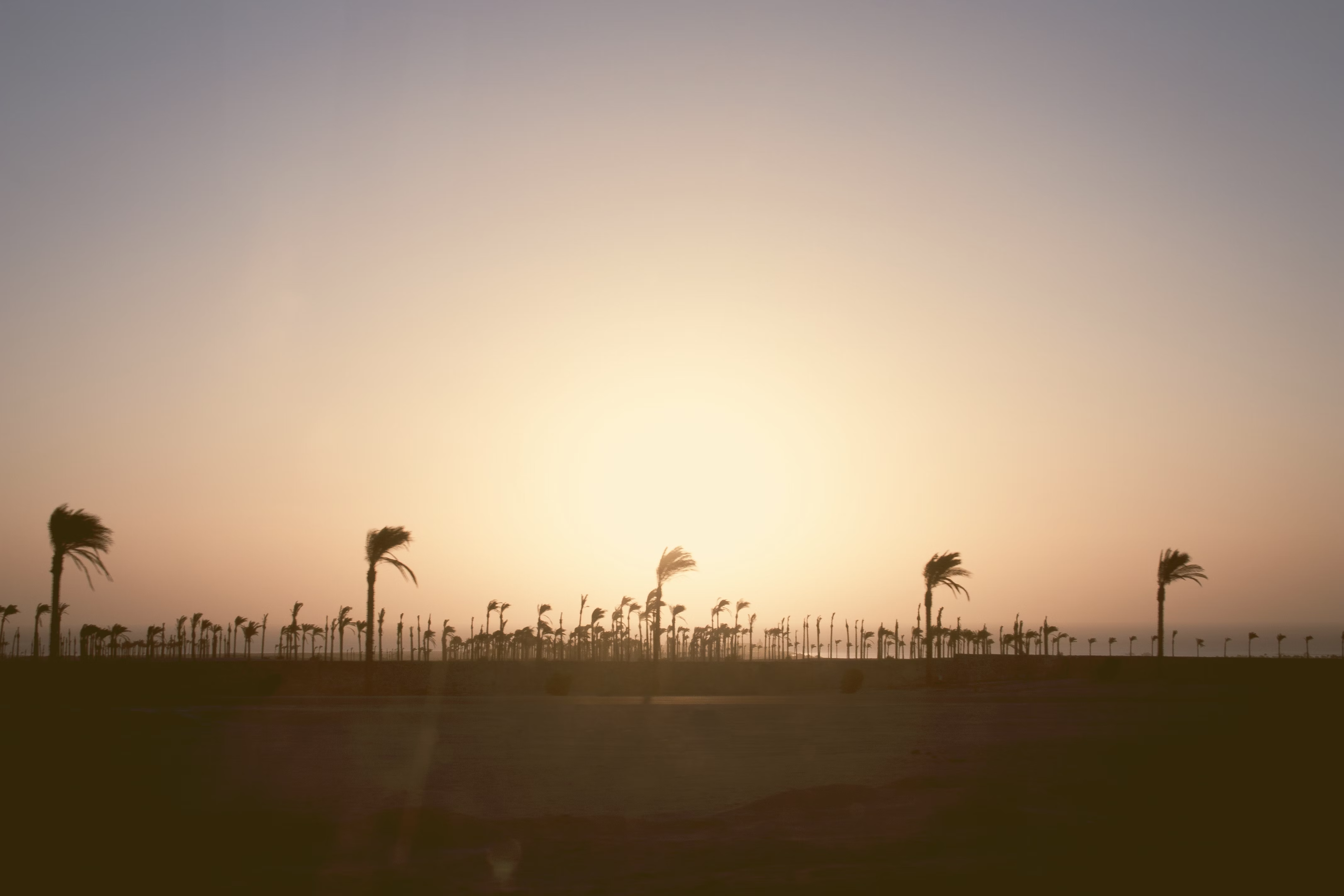
Let it be! I’m not sure why this image says “let it be” to me but it does. Image by James Douglas.
Ever since I was hit by a car in November, I’ve felt a little panicky every time I cross the street. My heart starts to race and I have to psyche myself up, triple checking where the cars are to ensure my safety. When I’ve tried something different, i.e. neutrality and self-compassion, I’ve noticed my fear of crossing the street has abated.
I don’t know this will work all the time, but it’s a bit of a relief to not try so hard to feel a certain way. To not judge myself and criticize myself for feeling something I don’t perceive everyone else does (i.e. being afraid of crossing the street). When I treat myself with love and self-compassion, the anxiety doesn’t fight back nearly as strongly.
Why am I telling you this? Maybe you can relate. Maybe you try to coerce yourself into being happy all the time or believing that if you’re not it’s your fault. That you’re not thinking the right thoughts, or meditating enough, or affirming enough, or eating the right food. And while those things may be true, what’s also true is that you and I are human. We are made to experience emotions. We are made to experience highs and lows. It’s unrealistic to expect that I’ll be happy all the time, and placing that expectation upon myself only makes when I’m unhappy that much worse.
How much easier would it be if we let our emotions pass like petals floating down a stream? If we didn’t expect that we could control our emotions with such exactitude? If we practiced radical self-acceptance and were kinder and gentler to our internal selves? I, for one, am finding there are a lot of emotions I’ve buried beneath my anxiety, and I wonder if I excavate them and allow myself to feel them, if my anxiety will disappear.
I dream of a world where we don’t try to force ourselves to feel one way or another. A world where we practice neutrality and self-compassion instead of judgment for our inner selves. A world where we let ourselves be.
Another world is not only possible, it’s probable.
I am very lucky in that there are friends in my life who are committed to growth and healing. People who don’t take the world or personal problems at face value and are always digging deeper – people who encourage me to do the same.
One of my friends, who is a therapist, told me anxiety is like an octopus – it will attach to anything, but there’s “stuff” the octopus is sitting on. For me, I have intense anxiety when I hear noise late at night. I get SUPER anxious about sleeping because I do not want to be tired. I don’t want to be tired because I don’t want to be unproductive. And I don’t want to be unproductive because I don’t want to be unlovable.

Anxiety is like an octopus — it attaches to stuff but there’s more underneath.
Let me phrase that in another way. There is a part of me, a very young part of me, that believes only by doing something, giving something, achieving something, that I am lovable. Like there’s a love quotient and the more I do and accomplish the more loved I am. So of course being tired and unproductive makes me anxious! Of course I’ve taken my life to the extreme of being busy all the time.
Even typing this my inner child is scared because her whole world is shifting. A paradigm she’s been operating from for a loooong time is crumbling and she’s freaking out. Change can be scary y’all.
The truth is, I don’t think anyone loves me because of my accomplishments. I don’t think anyone says, “That Rebekah, I only like her for her writing.” If I flip it around, there’s certainly no one in my life who I love solely because they’re whip smart, or a good writer, or ambitious. Sure, I love those parts, but they’re not the only reason I love someone. Similarly, no one loves me only for what I can do either. To take it even further, no one will stop loving me if I’m unproductive, if I sit around all day and watch Netflix in my pajamas. No one will say, “I’m sorry, you’re not doing enough so I no longer love you.” Why say that to myself?
I bring this up because perhaps you have been struggling with anxiety and it’s not getting better. Perhaps it’s about something other than what it seems. I also share this because I think we have so many outdated ideas we’re not aware of. Things we think we need to do or achieve or accomplish or be before we’re lovable, before we “deserve” what we want. I’m here to whisper, “It’s not true.”
Louise Hay says, “Life’s problems can usually be boiled down to not loving and approving of the self.” At first I didn’t believe it because, “Of course I love myself! I say affirmations all the time!” but I didn’t realize my love had conditions. That I had to meet certain requirements before I gave myself the love I desired. What can you let go of today and what can you do to love yourself even more?
I dream of a world where we unconditionally love ourselves. A world where we understand we are worthy and deserving of love no matter what. A world where we let go that which no longer serves us. A world where we look deep within to find the healing we deserve.
Another world is not only possible, it’s probable.
There are some qualities about myself I do not like – namely insecurity and anxiety. Partly, I feel a lot of insecurity and anxiety due to my heightened sensitivity as my adrenal glands normalize, but the qualities are still within me. I’ve been struggling with these two for a long time as you’ll have noticed from reading this blog. My affirmations of late have been, “I release my need for insecurity and anxiety, I release all resistance,” but there hasn’t been any traction. The affirmation hasn’t held.
Friday morning I decided to take a new approach. The Queen of Self-Love, Christine Arylo, recommends loving the things about yourself you do not like. I’ve done this with great success – every morning I say, “Rebekah, I love how sensitive you are because that means you’re better able to accept and receive divine messages.” So I tried conducting the practice on insecurity and anxiety: “Rebekah, I love how insecure you are because that means you’re interested in connecting. I love how anxious you are because that means you care deeply.”

I love this! Fish with love!
My battered, war-torn soul sighed in relief from no longer having to engage in conflict. “Really? Do you mean it?” I asked. “I really do,” I replied.
A very wise monk, who unfortunately passed away in November, used to say that all anything wants is infinite, unconditional love. That means my insecurity just wants to be loved, my anxiety just wants to be loved, my fear just wants to be loved, etc. All innate characteristics want infinite love. However, I also know, “As you think, so you become,” which is why affirmations are so powerful. Do I really want to keep affirming my insecurity and anxiety? Do I really want to keep these things around?
No. I do not. So what I’m circling back to is releasing them, however, this time I release them out of love. And I think that makes all the difference. Instead of saying, “Ugh, I hate feeling so insecure and anxious. Go away and leave me alone!” I’m saying, “I love you for what you’ve done for me, but now I recognize I don’t need you anymore. I release you and let you go.” I don’t need anxiety to care about people, places, and things, nor do I need insecurity to tell me I crave connection.
Maybe nobody cares about this except for me, but it feels pretty big. To love something I used to hate and then still let it go. To love all parts of myself but recognize some of them do not serve me. To release the bad and hold onto the good. To be open to new ways of being. To love myself so much I say goodbye to the old and welcome the new. I’m walking into a new paradigm and I dream of that for others as well.
I dream of a world where we release the traits that aren’t working for us with love. A world where we love ourselves so much we know when it’s time to say goodbye to some of them. A world where we keep the lessons we’ve learned but discard the rest. A world where we’re open to transformation and then receive it.
Another world is not only possible, it’s probable.

